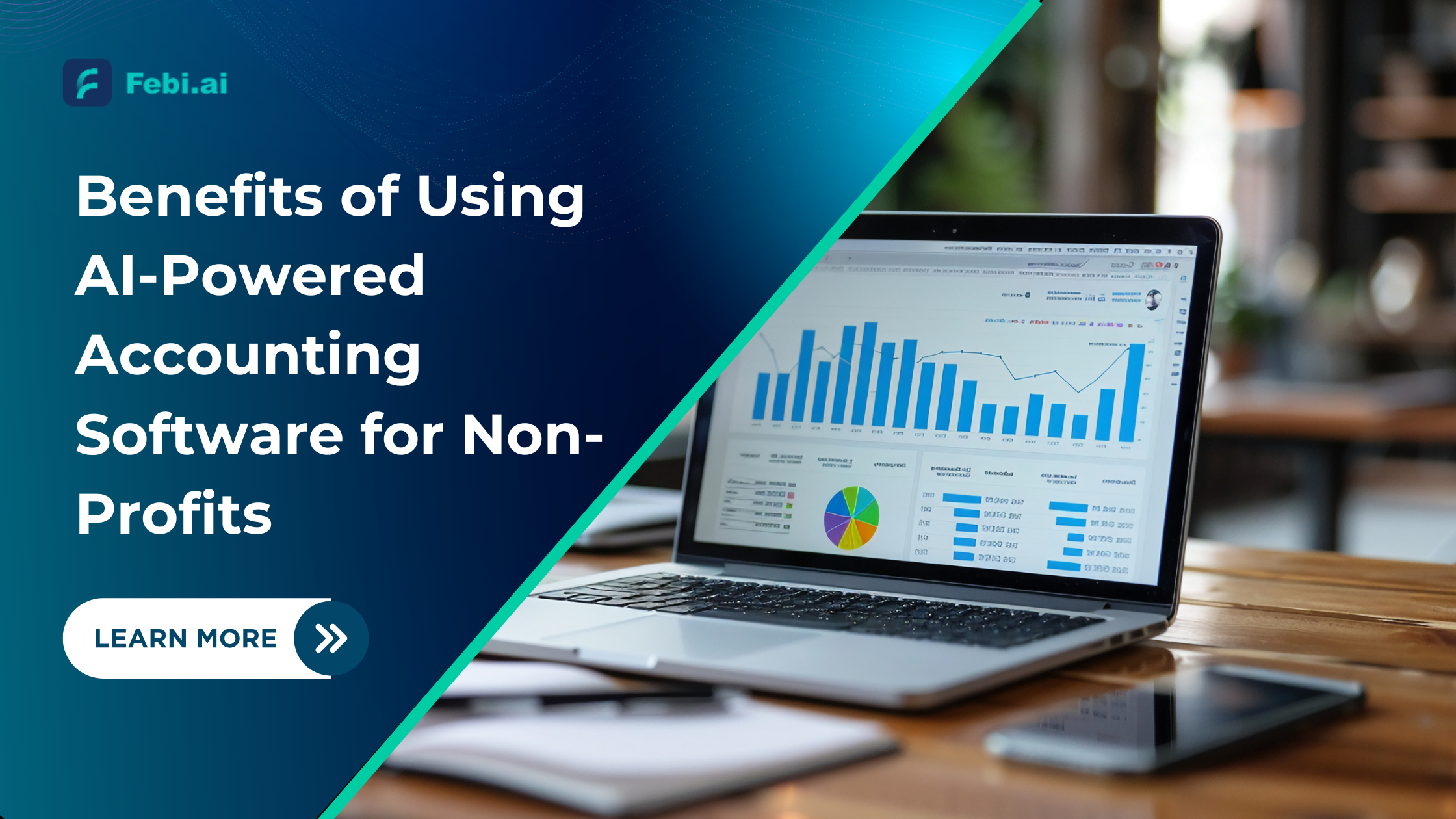Introduction
Non-profit organizations face unique challenges in managing their finances. Unlike for-profit businesses, non-profits must ensure strict compliance with regulations, transparent financial reporting, and efficient fund allocation. AI-powered accounting software offers a game-changing solution for non-profits by automating tasks, improving accuracy, and enhancing financial decision-making. In this article, we explore the benefits of using AI-powered accounting software for non-profits and how it can revolutionize financial management.
1. Automated Bookkeeping and Expense Tracking
AI-powered accounting software automates bookkeeping tasks, reducing manual data entry and minimizing human errors. The software can:
- Automatically categorize income and expenses.
- Reconcile bank transactions.
- Generate real-time financial statements.
This automation allows non-profits to focus more on their mission and less on administrative tasks.
2. Enhanced Accuracy and Compliance
Maintaining accurate financial records is crucial for non-profits, as they must comply with strict regulatory requirements and donor expectations. AI-driven software ensures accuracy by:
- Detecting anomalies and errors in financial transactions.
- Ensuring compliance with tax regulations and financial reporting standards.
- Automating audit preparation, making audits more efficient and stress-free.
3. Cost Savings and Resource Optimization
Non-profits often operate on tight budgets and rely on donations. AI-powered accounting software helps reduce costs by:
- Eliminating the need for a large accounting team.
- Reducing human errors that can lead to financial discrepancies.
- Streamlining financial management, allowing staff to focus on fundraising and program execution.
4. Real-Time Financial Insights and Reporting
AI-driven software provides real-time financial insights through dashboards and reports. Key benefits include:
- Instant access to financial performance metrics.
- Customizable reports for board members and donors.
- Forecasting tools that help in planning future budgets and expenditures.
This level of transparency enhances decision-making and builds trust with stakeholders.
5. Fraud Detection and Risk Management
AI algorithms can detect unusual financial activities and flag potential fraud risks. This is essential for non-profits, as they must safeguard donations and grant funds. AI-powered fraud detection includes:
- Identifying duplicate or suspicious transactions.
- Monitoring expense patterns for irregularities.
- Sending real-time alerts for any unauthorized activity.
This feature ensures financial security and maintains donor confidence.
6. Integration with Fundraising and Donor Management Tools
AI-powered accounting software seamlessly integrates with fundraising platforms and donor management systems. This integration allows:
- Automated tracking of donations and grants.
- Real-time synchronization of donor contributions.
- Improved donor engagement through financial transparency.
By connecting accounting and fundraising tools, non-profits can manage funds more effectively and maintain accurate records.
7. Scalability and Flexibility
As non-profits grow, their financial needs become more complex. AI-powered software is scalable and can adapt to changing requirements. Benefits include:
- The ability to handle increasing transaction volumes.
- Customizable features to meet specific organizational needs.
- Cloud-based access, enabling remote financial management.
This flexibility ensures that non-profits can scale their operations without financial bottlenecks.
8. Time Efficiency and Productivity Boost
AI accounting software automates repetitive tasks, reducing the workload for finance teams. This leads to:
- Faster processing of invoices and payments.
- Streamlined payroll management.
- Efficient grant tracking and fund allocation.
By saving time, non-profit staff can dedicate more energy to their core mission.
9. Better Budgeting and Financial Planning
Non-profits must carefully manage funds to ensure long-term sustainability. AI-powered software provides advanced budgeting and forecasting features that:
- Help predict cash flow trends.
- Assist in creating realistic budgets.
- Provide scenario analysis for better financial planning.
This data-driven approach enhances financial stability and resource allocation.
10. User-Friendly Interface and Minimal Training Requirement
Modern AI-powered accounting software is designed with user-friendly interfaces, making it easy for non-accountants to navigate. Advantages include:
- Simple dashboards with intuitive features.
- Minimal training required for staff and volunteers.
- Mobile access for on-the-go financial management.
This ensures that non-profits can quickly adopt and utilize the software effectively.
Conclusion
AI-powered accounting software is a game-changer for non-profits, providing automation, accuracy, and efficiency in financial management. From automating bookkeeping and enhancing compliance to offering real-time insights and fraud detection, AI-driven solutions help non-profits streamline operations and focus on their mission. As technology continues to evolve, adopting AI-powered accounting software will become essential for non-profits seeking financial sustainability and growth.
By leveraging AI in accounting, non-profits can optimize resources, maintain transparency, and build trust with donors, ensuring their long-term success. Investing in AI-driven accounting tools is not just a technological upgrade—it’s a strategic move toward a more efficient and impactful organization.









